SUMMARY
This is AI generated summarization, which may have errors. For context, always refer to the full article.
![[OPINION] An authentic revolution: Political change in Philippine society](https://www.rappler.com/tachyon/2021/04/political-change.jpg)
It is difficult at this time to think of options to address our national situation. We are faced with a mix of worsening old problems and emerging new ones. These are even aggravated by poor solutions offered by our political leaders.
The quality of government action this second year of the pandemic will be crucial to the nation’s survival. The worsening impact of the changing climate, the rapidly re-shaping world economic system, the dramatic shifts in energy sources – these and more are important issues that will also require national attention before they start undermining the nation’s prospects for the future.
Despite the pandemic, questions of who will continue to suffer oppression or be victimized by unjust economic orders have surfaced. Oligarchic and neoliberal interests are about rehashing schemes for continuing politico-economic domination of peoples all over the world. Strategies to protect national interest are being prepared for by many nations. How about us?
The existing political system in our country is corrupted to the core. Our elections are flawed. Indeed, the goal of many politicians is to perpetuate their self interest in government. And their kind will repeatedly succeed in manipulating the electoral system in their favor, simply because the system is designed to allow it.
We need a new orientation of leadership. Governance exemplified by coercion and fear cannot continue, nor should governance be guided by self-righteousness and hypocrisy. Our people must recapture their right to select their leaders, including the right to determine how and when this right is to be exercised.
It is true, the nation has been good at driving away oppressors, charlatans, and dictators. But let us take to heart equally the nation’s repeated failure to achieve the glory of what should be in the aftermath of leadership change.
People Power again?
The People Power Revolution of 1986 succeeded in overpowering the well-entrenched Marcos dictatorship. On January of 2001, then-Vice President Gloria Macapagal Arroyo took inspiration from the 1986 revolution and led a second version of people power. This succeeded in ousting then-President Joseph Estrada.
A careful assessment of the Arroyo-led uprising will reveal that no more than 300,000 people participated, quite negligible in comparison to the mammoth crowds that supported the February 1986 revolution. But it succeeded because a large segment of the Catholic Church supported it and the Armed Forces of the Philippines gave it immediate recognition. The crowd was small but it was deemed representative enough of the people, both rich and poor.
On the other hand, the ousted President Joseph Estrada failed in his counter People Power Revolution which he launched months after his ouster. This was despite the fact that he mobilized more than double the number of participants than that of the Arroyo-led uprising. This was so because the crowd that gathered was rumored to be only from one or two particular religious sects.
Revolutionary government?
Successful revolutions or uprisings are traditionally followed by the immediate establishment of a revolutionary government. The People Power Revolution of 1986 followed this tradition. President Corazon Aquino did establish a revolutionary government. However, her revolutionary government revealed a most unique character. It displayed near aversion to prolonging the revolutionary power that was so popularly and handsomely granted to her by her citizens.
The crucial steps that the Aquino-led revolutionary government undertook during its first nine months was a full display of the sincere desire of its leader to restore democracy at the quickest possible time. As it actually happened, what was more prominently restored was the return of old interests, both political and economic. On hindsight, the rapid shift to political normalcy may not exactly be what the people at that time wanted, nor was it what they deserved.
In the case of President Gloria Macapagal Arroyo, she immediately shed off the revolutionary character of her takeover and proceeded to govern within the prevailing politico-economic system. Dominant elements of her team readily assumed that the ripeness of the revolutionary spirit in Philippine society is limited to replacing a misbehaving President.
It can be argued that the decade-long presidency of Gloria Macapagal Arroyo is time enough to complete a revolution to its glorious end. But persistent harassments and serious threats of ouster actually reduced the years of President Arroyo to a balancing act between saving an ailing economy and surviving the presidency.
Conclusion
The People Power type of revolution is a valid option for enabling leadership change. Its peaceful character is preferred to the armed struggle approach that Filipino communists continue to insist on despite being proven to be historically obsolete and insanely destructive.
There was nothing wrong with the effort of the People Power revolution of 1986 to immediately restore political normalcy. But political normalcy should not be equated to mean the absence of revolutionary zeal in government.
To seek the ouster of a government employing revolutionary tools does not make a revolution. An authentic revolution is the totality of a nation’s quest to better their world. It may begin with the ouster of an undesirable government, but the real beginning is when the nation deliberately mobilizes and focus its entire worth on building the future. – Rappler.com
Norberto B. Gonzales is a former National Security Adviser and Defense Secretary. He is the lead convenor of the People’s Movement for Social Change.
Add a comment
How does this make you feel?

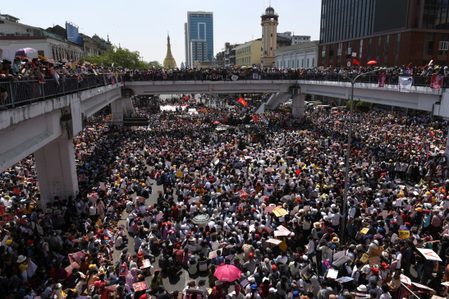
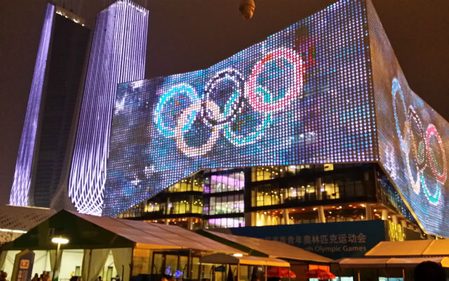
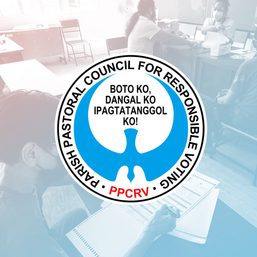
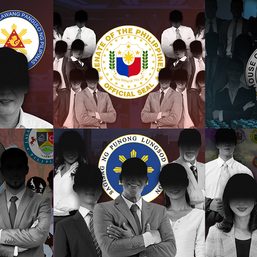


![[PODCAST] Beyond the Stories: Ang milyon-milyong kontrata ng F2 Logistics mula sa Comelec](https://www.rappler.com/tachyon/2021/11/newsbreak-beyond-the-stories-square-with-topic-comelec.jpg?resize=257%2C257&crop_strategy=attention)

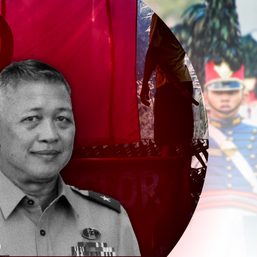

![[Bodymind] Forgiveness, Enrile, and Bongbong Marcos Jr.](https://www.rappler.com/tachyon/2024/03/forgiveness-enrile-bongbong-march-6-2024.jpg?resize=257%2C257&crop=411px%2C0px%2C1080px%2C1080px)
![[Vantage Point] Father and daughter caught in a vise of geopolitics](https://www.rappler.com/tachyon/2024/03/tl-father-daughter-geopolitics.jpg?resize=257%2C257&crop_strategy=attention)

![[Newsstand] The Marcoses’ three-body problem](https://www.rappler.com/tachyon/2024/04/tl-marcoses-3-body-problem.jpg?resize=257%2C257&crop=451px%2C0px%2C1080px%2C1080px)
![[Edgewise] Preface to ‘A Fortunate Country,’ a social idealist novel](https://www.rappler.com/tachyon/2024/02/a-fortunate-country-february-8-2024.jpg?resize=257%2C257&crop_strategy=attention)
![[New School] When barangays lose their purpose](https://www.rappler.com/tachyon/2024/02/new-school-barangay.jpg?resize=257%2C257&crop=414px%2C0px%2C1080px%2C1080px)
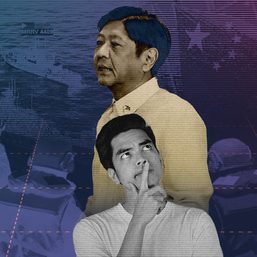
There are no comments yet. Add your comment to start the conversation.